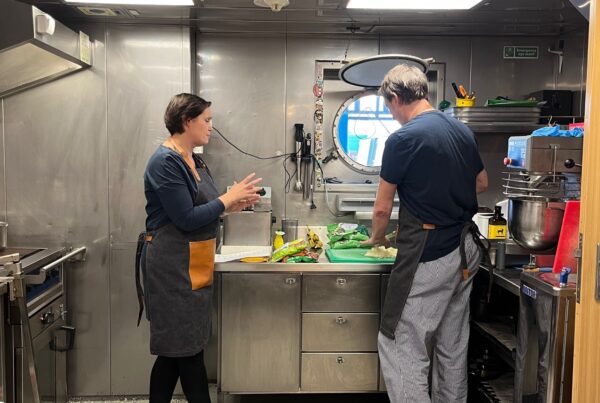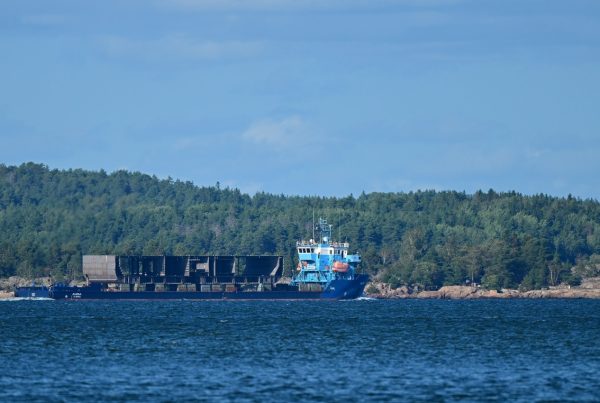Meriaura’s daughter company VG-EcoFuel collects recycled and waste-based oils generated as industrial by-products and processes them for further use at the company’s production plant in Uusikaupunki. Recycled oils are used for the production of biofuels, and as raw materials for technical oils and animal feed. The raw materials are 100% recycled or waste-based. Meriaura uses the VG Marine EcoFuel produced by VG-EcoFuel as fuel.
Since the beginning of the company history, VG-EcoFuel has had an externally audited sustainability system provingthat our production and raw material sourcing comply with the European Union’s Renewable Energy Directive (EU RED). At the end of 2022, VG-EcoFuel changed from the Finnish national sustainability system to the internationally better known ISCC EU certificate (International Sustainability and Carbon Certification) which has been fully recognised by the European Commission since 2011.
What does being certified actually mean?
With ISCC EU certification the compliance with the legal requirements for the sustainability and greenhouse gas (GHG) emissions savings criteria for sustainable fuels and the production of electricity, heating and cooling from biomass set out in the renewed Renewable Energy Directive (REDII) for all Member States of the European Union can be verified.
RED II compliant certifications ensure that during production the greenhouse gas emission reduction covering the renewable product’s entire life cycle is calculated correctly. It also proves that there is no raw material cultivation in restricted areas (e.g. high carbon stock areas, rainforests, wetlands and peatlands), biodiversity or endangered species have not been put at risk, there’s no land grabbing, workers’ rights have been respected and human rights have not been violated.
Are certifications obligatory?
According to RED, sustainable biofuels and bioliquids are a requirement for being included in the national distribution obligation, lower taxes, the fulfilment of terms and conditions of state subsidies, and the application of the zero emission factor. If biofuels or bioliquids are not verified to be sustainable, they cannot be included in the distribution obligation, they will be taxed more heavily, and the terms and conditions of state subsidies will not be fulfilled. Furthermore, if the economic operator cannot verify the sustainability of a bioliquid in an annual emissions report in accordance with the Emissions Trading Act, the bioliquid will be considered fossil.
What is behind the emissions reduction number?
The greenhouse gas emission reduction is a percentage that shows how much lower the greenhouse gas emission effect is compared to that of fossil fuels. VG-EcoFuel’s GHG emission reduction is almost 98%.
Because VG-EcoFuel’s raw materials are waste-based, the life-cycle emissions calculation starts from the collection of the raw materials (used cooking oil). The greenhouse gas emissions are calculated from transport and distribution and processing under the ISCC certification system, according to RED II (EU Renewable Energy Directive) applied. The emissions for the use of biofuels are calculated as zero.
These GHG reduction numbers are stated in the Proof of Sustainability (PoS) that VG-EcoFuel issues for each batch of VG Marine EcoFuel.
Why the change of certification system?
Both the Finnish national sustainability scheme and the ISCC EU are equally fully recognised by the European Commission and compliant with the RED II. There are also other schemes, voluntary international ones or national ones compliant with the RED II and recognized by the European Commission. The ISCC EU is however internationally most known and therefore the most familiar among our clients.
Minna Suuronen
Project and Communications Coordinator









